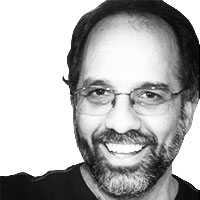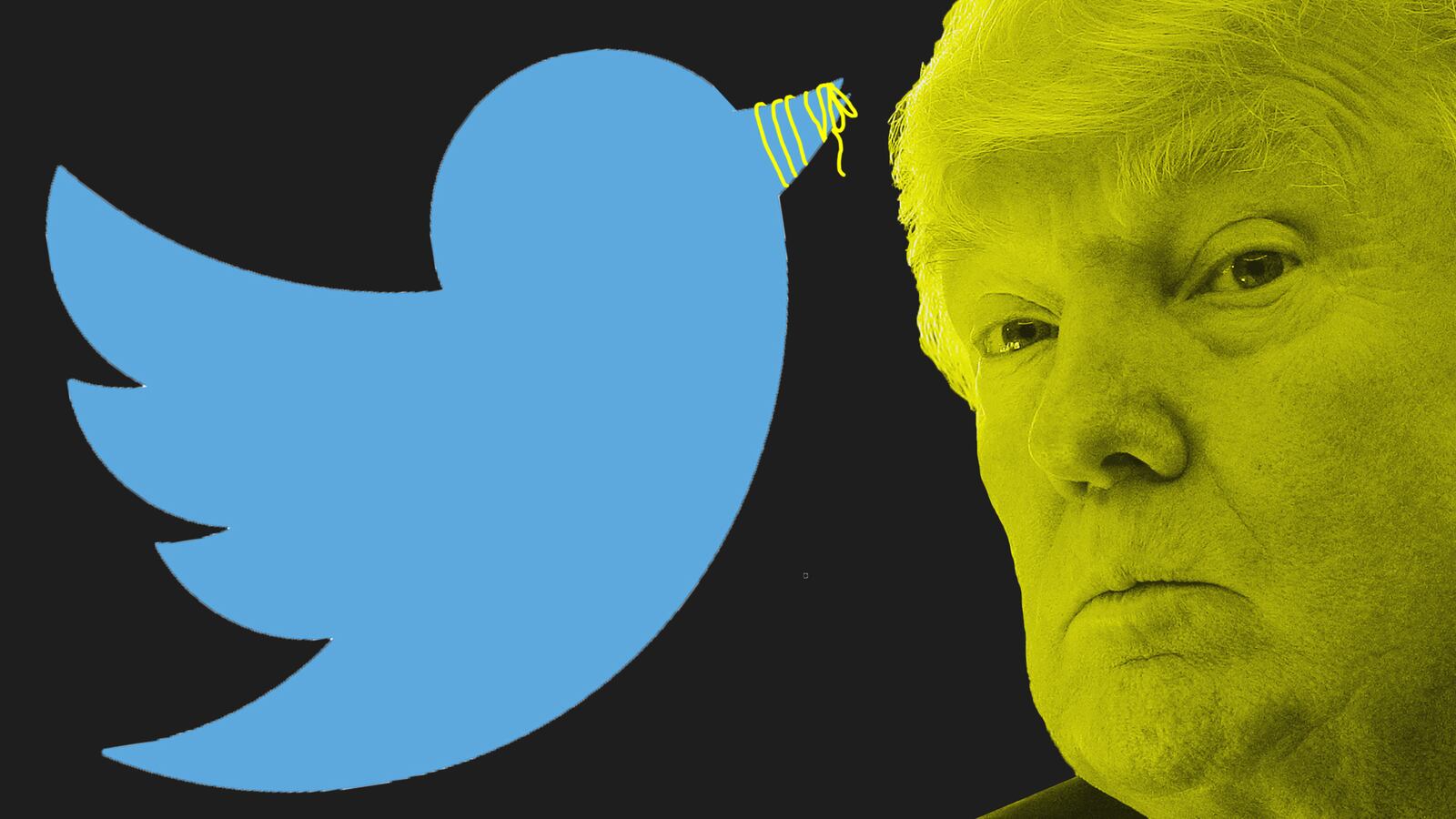When Trump won, I protested, I blogged, I gave money, and I read a lot. I took to heart the complaints that anti-Trump intellectuals were out of touch with rank-and-file Trump supporters. Although a few Trump supporters live right by me, millions more are a click away. So I tweeted, especially in the Trump threads, those burgeoning town halls that exploded into existence beneath each of his tweets.
In those Trump threads, there is actual interaction about politics between pro- and anti-Trump Americans. Often this includes trading insults, but that’s partly because people have strong feelings about serious issues. There are also lots of people lurking, reading, sharing things with their alienated friends and relatives, and actually thinking. It happens. And we need more of that if we are going to get out of this mess in the coming years.
And then @realDonaldTrump blocked me. It was on June 6, fifteen minutes after I sent this tweet:
Just as I had been shocked when he won the election, I was flabbergasted when he blocked me. I literally thought to myself, “Can he do that?”
My anti-Trump tweets (some collected on my blog) got, for me, a lot of attention. I guess that’s because I am a “verified” Twitter user (meaning I tweet as myself, and Twitter vouches for my identity), and I have a relatively large number of followers (a few thousand), my comments on Trump tweets were shown to a lot of readers. Hundreds of thousands of people viewed them, thousands offered likes and retweets, many commented. I got some death threats, heard a lot of words of encouragement, and even had a few real debates. And that’s all from a tiny fraction of the people who read them.
I know I risk ridicule when I say this was very valuable to me personally. I’m white (although Jewish never felt so much like a minority status as in the last year) and relatively rich even for an American, and I have a great job with health insurance. So in the grand scheme I have little to complain about. And it’s not that I don’t know the lengths to which the powerful have historically gone to repress those who oppose them. I’m a sociologist who studies inequality in the United States.
But having my First Amendment right to free expression curtailed – in so personal a way – stung me. I am excluded from what is probably the most effective form of political speech I’ve ever had.
Every time someone in my bubble says, like I did, “Can he do that?” we have to pause. Is this a norm violation – something that he will “never get away with” politically – like refusing to release his tax returns? Or is it illegal, like renting out Trump Hotel rooms to foreign delegations may turn out to be?
During a period of social flux and upended norms, the law can help. We need legal challenges – conducted in a formal setting where facts matter, where lying is a crime – to establish the boundaries beyond which the outrages of the president and his people go beyond obnoxious and become illegal.
In our lawsuit, lawyers from the Knight First Amendment Institute explain that the president’s Twitter account is a “designated public forum” under the law, and the courts have said the First Amendment prohibits the government from excluding people from such a forum because of their views. In essence, he announced a public space for political speech, and then expunged it of views he finds uncomfortable – including those of myself and the other plaintiffs to the suit. We think that’s more than obnoxious. It’s illegal.
Not everyone agrees with our position on the law, but because it asks a core constitutional question about our new media ecosystem, it’s an important one to take to the courts. We are confident we will prevail.
So, feel free disagree with me, mock me, and even block me on Twitter – unless you’re my president (there, I said it).






